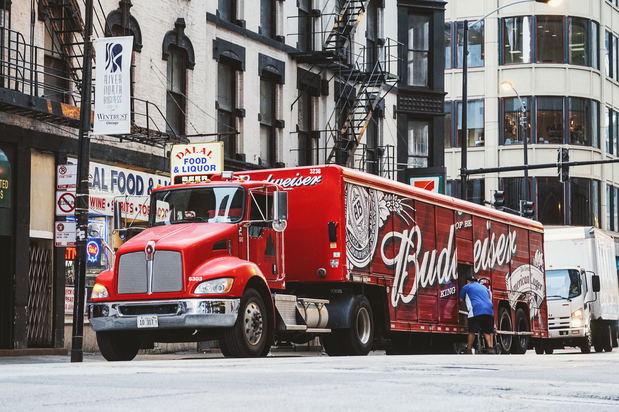While the truck driver profession often faces a negative stigma, the 3.5 million drivers on the road know how hard the job really is. Truck drivers work 11 to 14 hour days, handling up to 80,000 pounds of freight, while spending weeks away from home.
Many people enjoy the freedom of the road, but many others fall into patterns of substance abuse, especially since it lends to a lifestyle that can make sobriety a challenge.
Difficulties for Truck Drivers to Stay Sober
Many motorists think professional operators sit comfortably in their climate-controlled cabs and let the road do the work. But trucking is not a stress-free occupation. ClassADrivers, a community of over 100,000 truck drivers, features many stories about how stressful the life of a trucker can be. In the site's "Become a Truck Driver" guide, it details many of the challenges that truckers face.
For one, because long-haul truck drivers travel across country for weeks at a time, they eat at truck stops and live out of the truck while on the road. They miss opportunities for healthy eating, exercise, and even basic social interaction.
Also, truck drivers of all types often work through the night and must push against the speed limit to make their tight deadlines. While many drivers rely on caffeine to stay awake, many others rely on stimulants or other drugs.
Another complication for truck drivers is that they sit in the truck for 11 hours a day. Drivers with bad posture may develop back pain and get prescription medication. These pills can often lead to abuse if the pain becomes unbearable.
In addition to the factors that are unique to driving, professional truckers have the same worries as other workers: family, friends, home, health, and bills. Juggling these concerns while on the road, however, is specific to the truck driving industry. Balancing these responsibilities can get complicated when faced with demanding delivery schedules.
How to Stay Sober
Although life on the road can be hard, there are a number of things you can do to keep your life from falling off balance. Here are three ways to better support a sober life as you drive long distances.
1. Maintain a sleep schedule.
The most important strategy for remaining sober on the road is to maintain a regular sleep pattern. When your average workday lasts 14 hours, getting plenty of shut-eye should be number one on your list.
Sufficient sleep is scientifically proven to boost your mood and mental health, and the benefits increase if you can maintain a regular schedule, sleeping the same hours each day. At almost twice the length of the typical workday, drivers’ time on the road is exhausting and demanding, both mentally and physically. Rest is critical.
2. Pick your meals wisely.
Drivers should do their best to find healthy meal choices. A limited availability of healthy food options has long been a problem in the big rig world. If you look around the highway truck stop, there’s no shortage of drivers inhaling roller-grill hot dogs, cheeseburgers, bags of chips, and other hot-box food.
Consuming healthy alternatives—such as fruits, nuts and vegetables—gives your body the energy it needs, so you don’t have to rely on other substances. Healthy food keeps drivers alert and awake longer, which can cut down on the desire for other stimulants.
3. Find healthier ways to decompress.
While drivers should keep in close contact with their family and loved ones, it’s important to shut off all the electronics at the end of the day. Truckers can fall into the easy pattern of starting on a movie on their laptop and indulging in food and alcohol at the end of a hard day. Instead, try to maintain a schedule of exercise.
Even if you only walk laps around the lot for thirty minutes and then read a book till bedtime, this will help you get the sleep you need when you need it. This helps prevent drivers from relying on sleeping pills to keep up with rigid delivery schedules.
The movement will improve your overall physical health, and the time spent reading will engage your mind instead of tranquilizing it. Many sober drivers also have a strong devotion to meditation.
Sometimes meditation is as simple as sitting in your silent cab at the end of the day, thinking about a beautiful scene viewed while driving across this great country. Drivers can think of the soothing tones from the voices of a family member or friend’s recent phone call, or the way a friendly motorist flashed his headlights to give you the right of way around a struggling rig. There are many things to be positive about, and all of them will increase your overall outlook on life and ability to stay sober.
Are Truck Driver’s Drug Tested?
If the above suggestions aren’t helping, perhaps the reality of drug testing will. Being a Class A truck driver means you are responsible for the safety of yourself, your passengers, and every other vehicle on the road.
While drivers don’t need to pass a drug test to get their Class A commercial driver’s license, most trucking companies do test their drivers. Recent studies show upwards of 26 percent of truck accidents nationwide involved drivers on prescription drugs.
No driver wants to be involved in injuring, maybe even fatally, another person, and no trucking company wants to be liable. You may never get hired if you do drugs, and if you start while on the road, you risk your own life and career.
Most importantly, for anyone who's thinking about spending time on the road, remember to use the tips above to keep your mind bright, keep your engine clean, and keep everyone around you safe with sobriety.
|
If you or someone you know is seeking help from addiction, please visit our directory of treatment centers or call 800-891-8171 to speak to a treatment specialist. |








